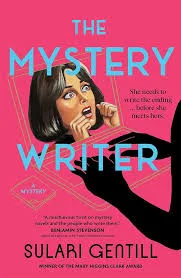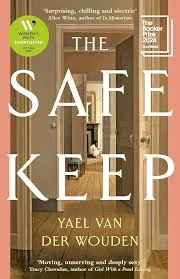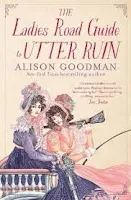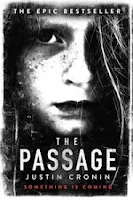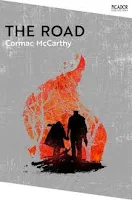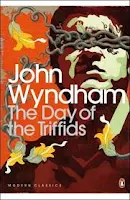Hannah Kent, where do I begin. After I had my children, I suddenly found it very hard to read and write. Over time, I gave up my blogging (Page Turners) and stopped reading. When I did read, I usually re-read. It was Hannah Kent's Burial Rites that was the first fresh book that I had read for a long time that grabbed and retained my interest. I became lost in it, and I have loved Hannah's Kent's writing every since.
I was so excited when I saw that Hannah Kent would be speaking at the Sydney Writers Festival, and at a lovely local bowling club that I was very familiar with. I reached out to my girlfriends, and we all agreed that we would have a mid-week night out together to listen to Kent speak about her new memoir Always Home, Always Homesick.
I feel very fortunate to have been able to see Kent speak about this work which is no doubt special to her. She spoke so articulately and lyrically about her experience of Iceland and of writing. I could hear her written voice coming through and she had the audience engaged with her unique experience of living in Iceland and later writing about a well-known Icelandic story of the final execution in the country.
The review
Always Home, Always Homesick is a memoir written with the lyrical quality Kent is known for. The memoir delves into her experience as a teenage exchange student to the beautiful Iceland, which has become her home away from home. It has a non-linear structure, moving between her experience as a teenager living with host families, as a creative writing student researching for Burial Rites, and her experience as a new mother reflecting on her experiences in the past and how they have shaped her. The structure means that the memoir is fragmented, but it is very cohesive and, in a way, deeply intimate.
As the title suggests, the main theme of the memoir is the paradox of feeling at home and homesick at the same time. While in Iceland as a teenager, Kent feels homesick for her family and friends, but eventually comes to feel a sense of belonging. Eventually, she becomes deeply connected to Iceland and feels homesick for it - especially as she struggles through those early weeks and months with a newborn. It evokes in her a sense of longing. What was interesting in the Sydney Writers Festival author talk was that she spoke about discovering that home for her also meant writing. She felt at home in writing, and could feel at home wherever she was, so long as she was writing. I that sense Always Home, Always Homesick shows home as a physical location, but also as an emotional state.
Much of the memoir provided insight into Kent’s creative writing practice and how it's changed over time. I loved reading about how she would write stories under a special tree at her family home and kept journals as she grew up and as she travelled. During the author talk she spoke about how she felt at home in her writing writing, but I had sense during the memoir that writing was also how she processed her experiences and feelings.
Always Home, Always Homesick also contains Kent's reflections on motherhood. It begins with Kent awakening from a deep dream, but finding herself still in almost a dreamlike state as she wakes to feed her newborn. She reflects on how motherhood changed her body, her mind and her sense of time - all things that I thoroughly identify with. She explores the tension between her need for solitude and creative space but also her new role as a primary caregiver for young children. It was funny at the author talk to hear her reflect on her writing process pre and post children. Before children Kent had a strict writing routine that she believed was essential to the writing process. Having children taught her that she still tap into her creativity, despite having background noise and mess and interruptions - something all parents need to get used to.
The memoir contains such evocative descriptions of Iceland, I have become determined to visit one day to see the beauty for myself. In her descriptions of Iceland and Australia, Kent describes the natural world so beautifully and clearly that one can't help but feel she must have a deep connection to the natural world.
In short, Always Home, Always Homesick is a beautiful memoir that combines personal experiences, intimate insights and evocative descriptions of Iceland. If you haven't read anything by Hannah Kent before, I suggest that you start with her debut novel Burial Rites, which is directly linked to this special memoir. For fans of Kent's fiction, you will love this foray into non-fiction. The Good People is the only one of Kent's novels that I have not yet read, and at the author talk I was able to purchase a copy and have Kent sign it. It is definitely a book that I will treasure.

